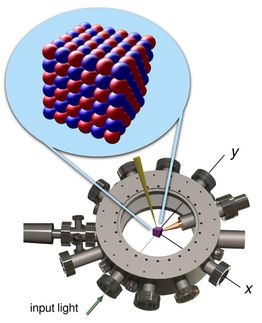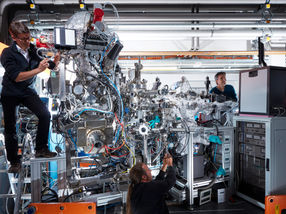The Game Algorithm that could Improve Materials Design
New algorithm could help scientists decide the best atomic structures for the materials they design
Advertisement
Designing advanced materials is a complex process, with many potential combinations for precisely placing atoms within a structure. But now, scientists have developed a new tool that helps determine the ideal placements - thanks to an algorithm that identifies the best moves to win computer games, according to a study recently published.
Scientists who design advanced materials, which have applications in silicon microchips or optical fibers, for example, often struggle to determine how to position atoms within a crystal structure to achieve a targeted function. To improve this process, researchers in Japan developed a new method called Materials Design using Tree Search (MDTS). It identifies the best atomic positions using an algorithm called the Monte Carlo tree search, which has been successfully employed by computer games to determine moves that bring the best possible outcomes.
The team used their method to identify the best way to design silicon-germanium alloy structures, which have either a minimal or maximal ability to conduct heat. Materials with minimal 'thermal conductance' can recover waste heat from industrial processes for use as an energy source. Materials with maximum thermal conductance can draw heat away from computer processing units.
The alloy has a certain number of atomic spaces that can be filled with silicon or germanium. The MDTS algorithm goes through an iterative learning process that computes which of all possible positions is best for placing silicon or germanium in order to achieve the desired degree of thermal conductance.
The team compared their method with another commonly used algorithm for this purpose and found that MDTS was comparable or better in terms of total computational time. Their method also has a "substantial" ability to learn from data.
"MDTS is a practical tool that material scientists can easily deploy in their own problems and has the potential to become a standard choice," the researchers conclude.

































































